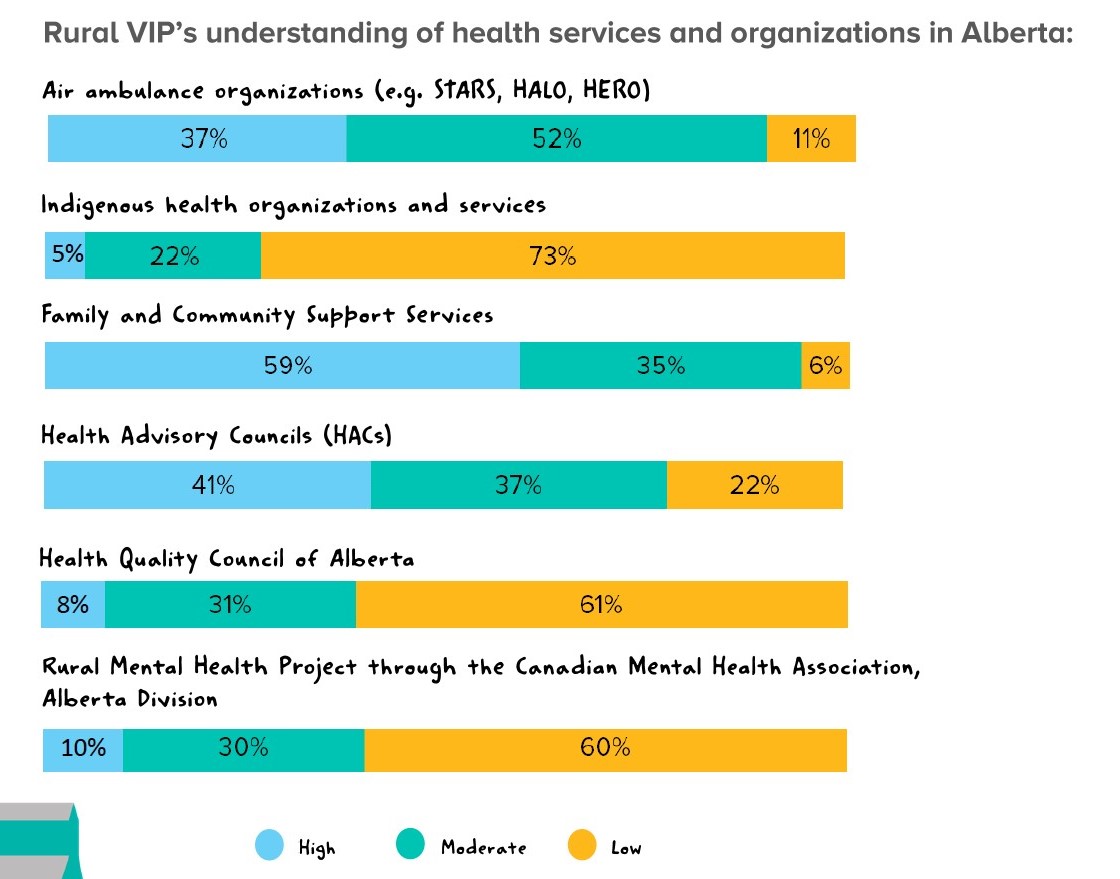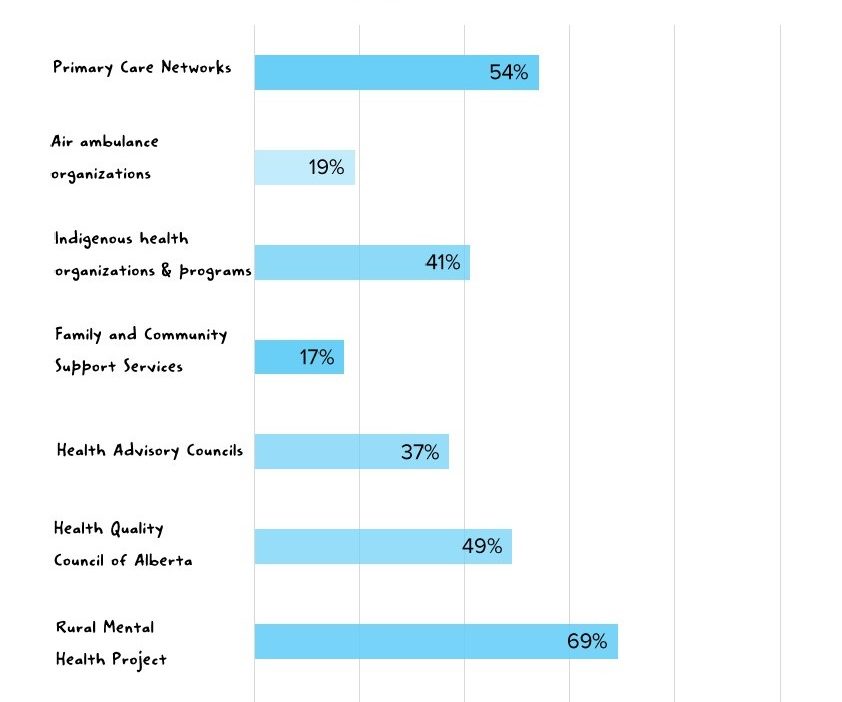In September, RhPAP asked the Rural Voice Information Panel, or Rural VIP, about a range of health services and organizations that are part of Alberta’s health-care system, including primary care networks, air ambulance organizations, Family and Community Support Services, the Health Quality Council of Alberta, and other groups.
The purpose of this survey was to learn more about the panel’s awareness and understanding of various health organizations in Alberta, many with whom RhPAP collaborates or supports, and to identify what further information respondents would like to know. RhPAP was also interested in unique health-care supports, services, or organizations that are available in respondents’ rural communities.
- Download the full summary of the results of this survey.
- Download the key results.
Key findings
The first question asked members to share their knowledge about primary care networks (PCNs), which are networks of family physicians and other health professionals, such as nurses, dietitians, social workers, mental health therapists, and pharmacists, who work collaboratively to provide integrated care for patients’ primary health needs.
The majority of respondents recognize the purpose of PCNs, are aware of the types of programs and services their local PCN offers, and know how to find information about PCNs in their health zone. [Figure 1]

With respect to their recognition of Albertan health organizations, respondents reported that they had a limited understanding of the following organizations: Indigenous health organizations and services (73 percent); the Health Quality Council of Alberta (61 percent); and the Canadian Mental Health Association’s Rural Mental Health Project (60 percent).
Overall, 59 percent of respondents reported a high understanding of the role of Family and Community Support Services, followed by Health Advisory Councils at 41 percent. As for air ambulance organizations such as STARS, HALO, and HERO, 37 percent of respondents reported being highly aware and 52 percent moderately aware of these organizations. [Figure 2]

When asked about which supports and organizations about which they were interested in learning more, the top three responses were the Rural Mental Health Project (69 percent), primary care networks (54 percent), and the Health Quality Council of Alberta (49 percent). [Figure 3]

To help RhPAP learn more about the panel’s interests, respondents were asked to identify specific information they would like to know about their selections; they had many questions. See the next section for what RhPAP will do with these questions.
We also asked about local health-care services or supports in respondents’ communities that contribute to the health and wellbeing of residents. Respondents identified the following local resources: Family and Community Support Services, local health foundations, community attraction and retention committees, a wellness coalition, a healthy community coordinator, and a pregnancy care centre.
Next steps
Input from this survey helps to inform RhPAP’s educational resources and programming, so that we can support rural Albertans’ understanding and awareness of provincial health organizations and how they influence rural health care. Stay tuned as we developed resources to help answer the questions put forward by rural community members through Rural VIP!
We are sharing the results and feedback with interested stakeholders and groups who are included in the survey questions. Each month, RhPAP also shares learnings and feedback from the Rural VIP with Alberta Health and the RhPAP Board of Directors, who represent the following organizations: Alberta Health Services, Alberta Medical Association, the College of Physicians and Surgeons of Alberta, Rural Municipalities of Alberta, and the College and Association of Registered Nurses of Alberta.
